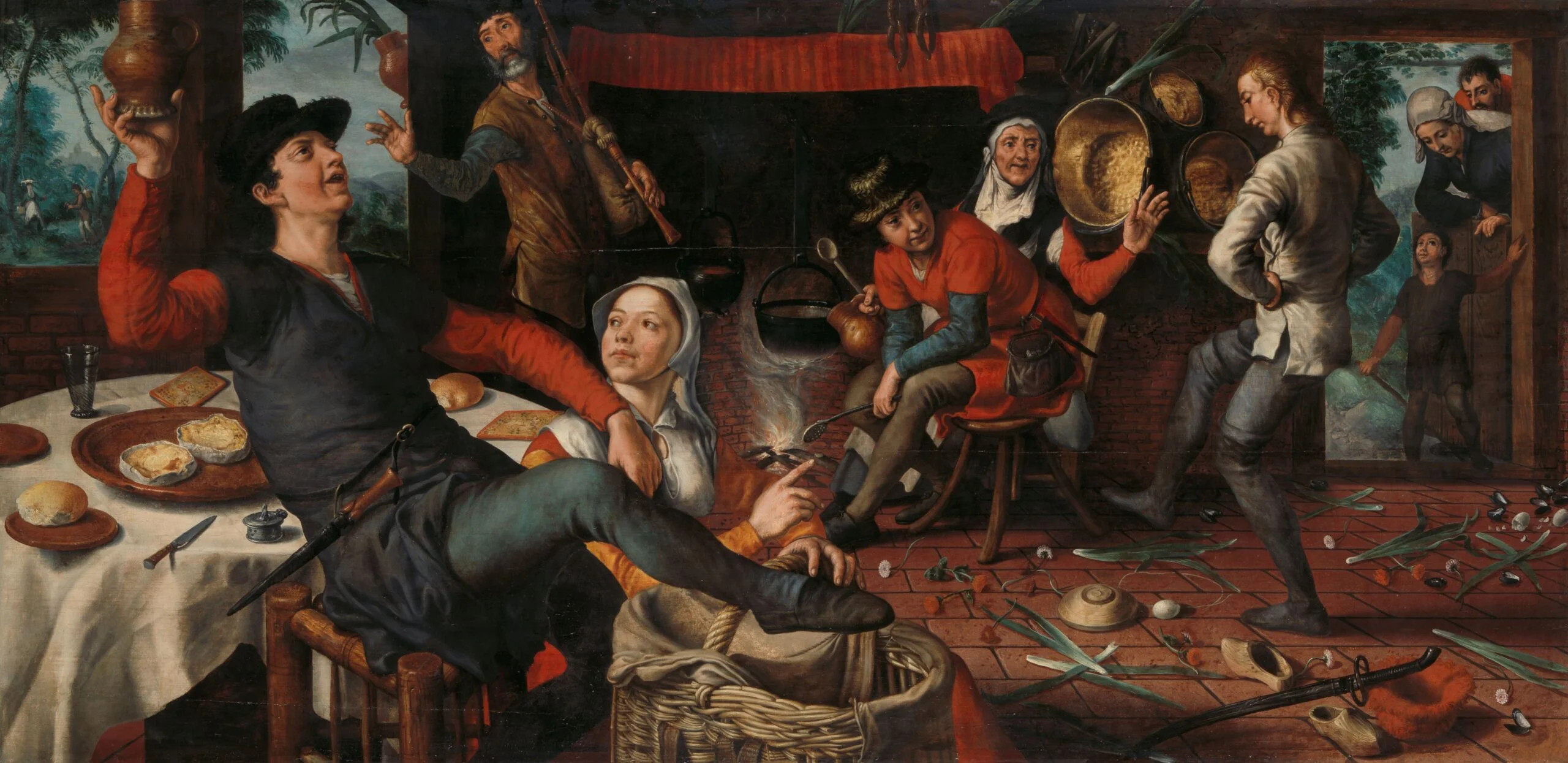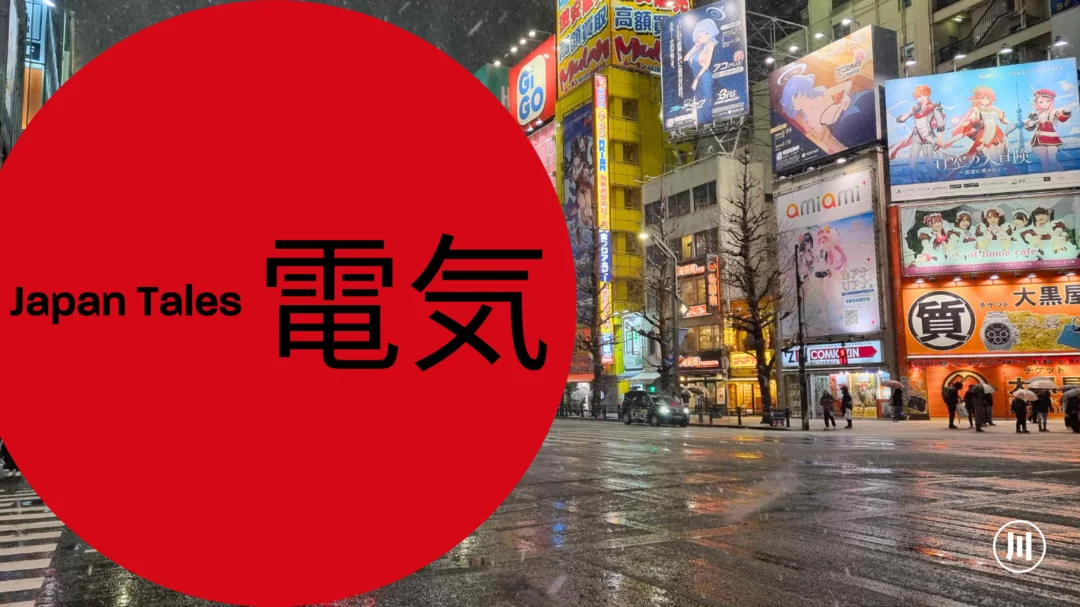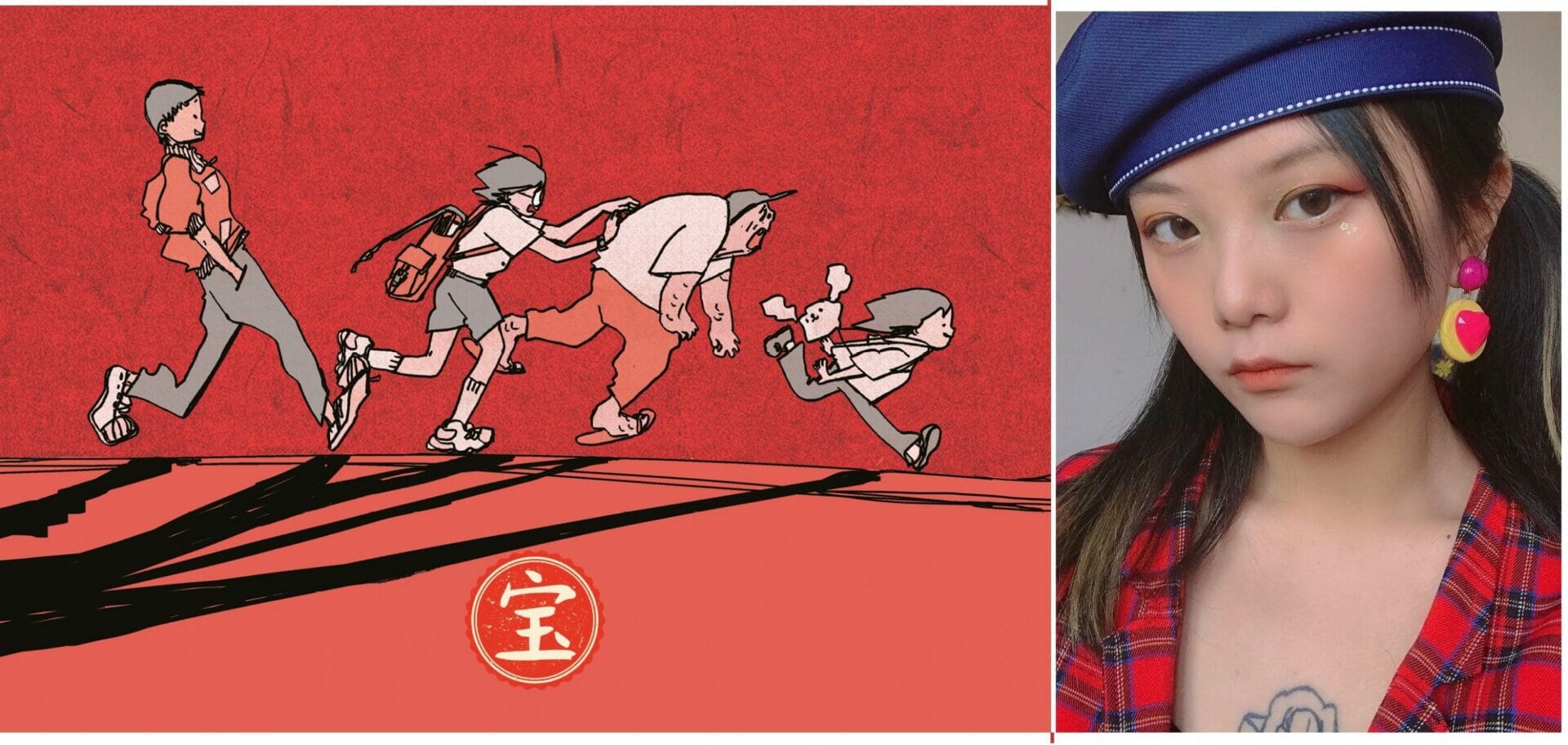
The 33rd edition of the International Book Fair of Turin hosted a considerable number of events and presentations related to comics. Among them, on the 15th of October, the comics artist Yi Yang presented Easy Breezy, her first graphic novel. It is a fast-paced narration about friendship, combining an on-the-road story with crime features. It all starts with the theft of a van: a bully, a nerd, a compliant uncle and a mysterious girl end up in trouble and get sucked in an unexpected adventure.
Yi Yang, born and raised in China, published Easy Breezy in March 2021 with Bao Publishing. Yang moved to Italy in 2013 after high school to study fine arts and now lives in Bologna. In 2016 she was picked at the Bologna’s Children’s Book Fair and works with several magazines and publishing houses, like ChunFengWenYi and Holding Limited. For the writer Isaak Friedl she illustrated the volumes Aiuto! and Aiuto! – Fratelli, also edited by Bao Publishing.
Hypercritic interviewed her about her latest work, style, and sources of inspiration.
What is the most urgent message you wanted to convey to your readers with Easy Breezy?
Yi Yang: I wanted to tell stories, probably unusual stories, of a China that maybe now has already been forgotten. That’s why I decided to set the story in 1990, in a city that resembles the one where I was born. China now is showing to the whole world its power, its technological assets, and so on, so I wanted to focus on what was happening there a couple of decades ago. I also chose to set it in a small city, instead of a metropolis like Shanghai or Beijing, because I believe it is something western readers are less aware of.
You were born and raised in China, then you moved to Italy a while ago now, so you have a proper overview of your country both from the inside and the outside. How do you feel about this double perspective you have on China?
First of all, I think we are all overwhelmed by stereotypes, on both sides. This goes for Europe or the USA, which have their own beliefs about China and Chinese people. As well as China has theirs about the Western culture. Anyway, since I moved here, there are things I noticed or discovered that I wasn’t able to see as long as I was living in China. Living outside my country granted me the chance to have a different perspective on it. It felt a little bit odd, but when you live in one place for so long, you get used to it. Then, if you move to a different place you discover very different behaviors, habits, cultures.
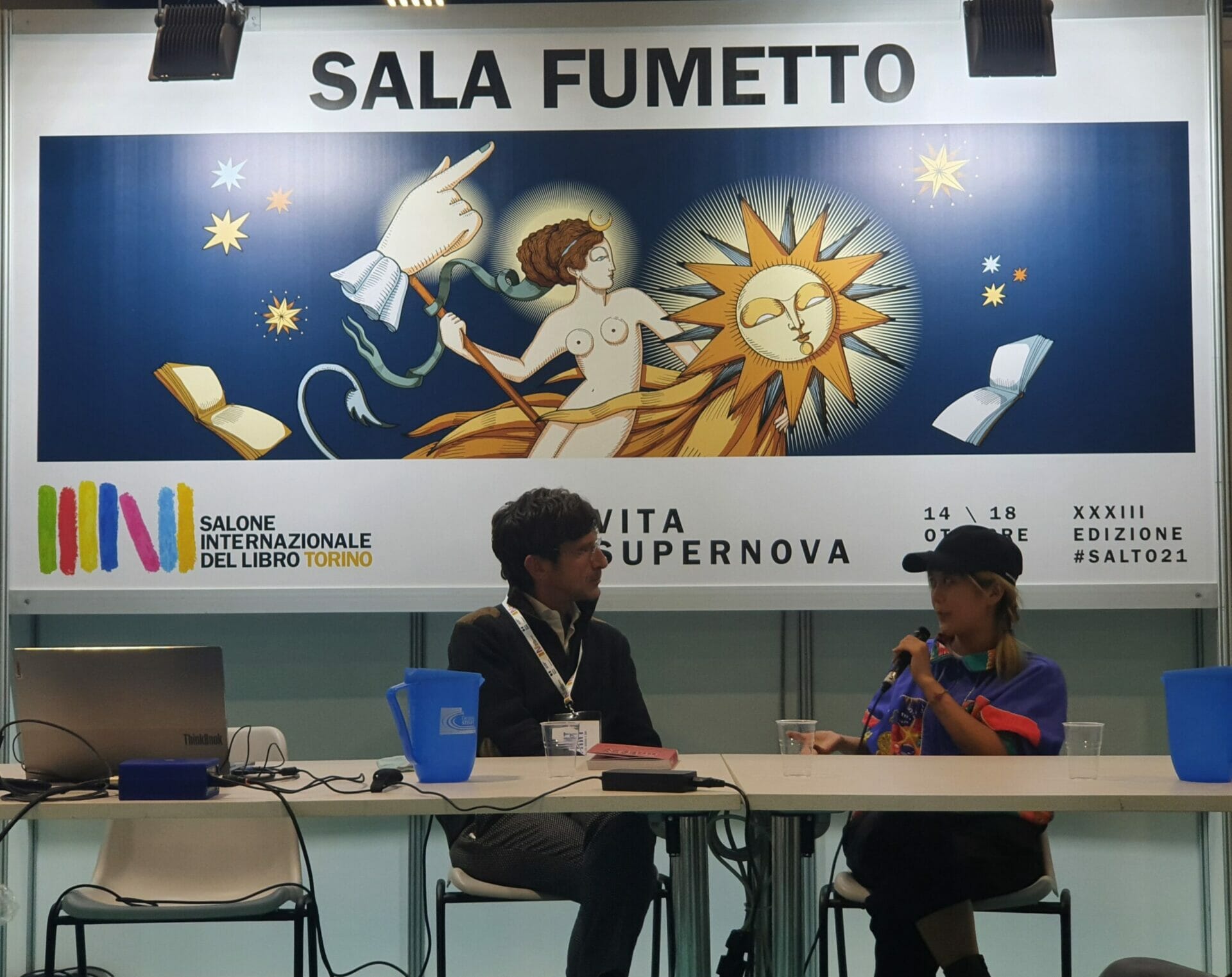
Why did you pick Italy, among other countries?
In China, I attended the arts high school and I was always thinking about working in art conservation. I wanted to restore paintings and books. Italy, of course, is one of the best choices you can make to grow in this field, thanks to the vast presence of museums and pieces of art. Then I discovered comics, which turned out to be my real passion, so I decided to switch to them.
Are there Italian comics artists you draw inspiration from, both contemporary ones or from the past?
Among contemporary ones there is for sure Gipi, I really love his style. I also feel close to authors like Zerocalcare or Nova. However, my true role models have been artists like Alberto Breccia and Sergio Toppi. Studying their works I learned how to draw comics and draw in general. Andrea Pazienza also inspired me a lot, not so much for the drawing styles but in how to handle ideas. Reading his comics made me feel emotions that are unusual for me and he incited me to be as visionary as I can be in my works.
Other artists, who have had an impact on you?
I grew up very close to Japanese culture, so I am influenced a lot by manga and Japanese animation. To mention some, I would say Jiro Taniguchi, Naoki Urasawa, Taiyo Matsumoto as comics artists, Akira (both manga and anime) and also the works of Studio 4°C, I would recommend their movies to anyone. I also take into account moviemakers, for example, Quentin Tarantino, especially when it comes to writing plots and dialogues.
In Easy Breezy there is also something that reminded me of Satoshi Kon…
Of course, Satoshi Kon is one of my favorites, it’s a shame he passed away. I think God was jealous of us, so he wanted Kon to join him as soon as possible.
Tell us which Japanese anime or manga you are enjoying a lot lately.
I would say Summer Time Rendering, it’s a manga which mixes crime, supernatural elements, romance. In general, I like stories that manage to blend different genres while giving insights into characters’ emotions. I think that’s how you get to the reader, how you make them move.
And do you like to provoke these mixed-up feelings with your works too?
Sure, in Easy Breezy I tried to do that as much as possible. The setting may be a crime or somehow an on-the-road story, but what I cared about the most was creating convincing relationships between the characters and making the reader feel close to them. The author has always to remember that there is someone reading or watching or listening to their works. Any kind of art is a communication between two people.
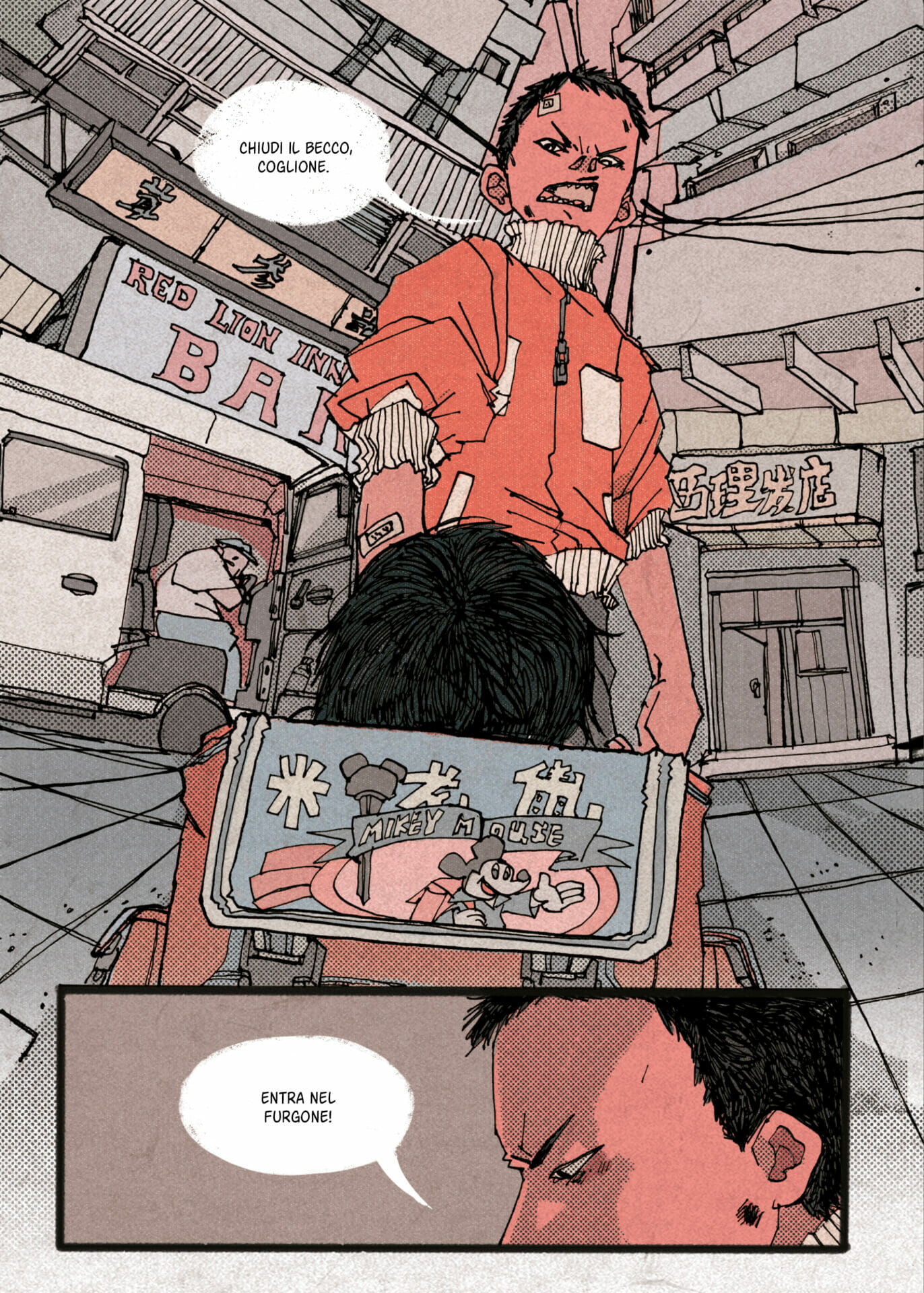
Shifting to technical matters, do you ever feel that comics do not allow you to do things that maybe other art forms would?
Well, actually I think about this quite often, especially when I want to make complex framings. I say to myself that if I had a camera I could do this and that, but in the end I would probably feel limited in other ways. I have friends who work as directors that always tell me that even with a camera there are scenes and actions you cannot shoot. But maybe the biggest lack I feel sometimes is that in comics you don’t have a soundtrack, voices and so on. As a comic artist, I can only give the panels and the dialogues to the readers. It is up to them to imagine all the auditory parts.
Have you ever thought about experiencing something different, like for example directing?
Yes, I would really love that. I would also be glad to work as a screenwriter for TV shows. I am open to every opportunity!
Before Easy Breezy you worked as an illustrator for Aiuto! and Aiuto! – Fratelli (Help! and Help! – Brothers) with comics writer Isaak Friedl. How was it creating a graphic novel entirely on your own?
There are pros and cons. Collaborating with someone can make your work steadier, plus I find it easier to be only the illustrator because you are not necessarily involved in the conception of the idea, the story, etc. However, I think I find it more comfortable to work alone. I have my own pace and I don’t want to force it on someone else. As much as I prefer not to be subject to the work pace of others.
Last question, can you tell us something about your next graphic novel?
Well, obviously I can’t say much, besides I finished working on the story structure last week. What I can say is that it will have the same protagonists of Easy Breezy, even if the two stories won’t be directly related. Like my previous work, it will start in medias res, but this characteristic will be much more relevant this time.


